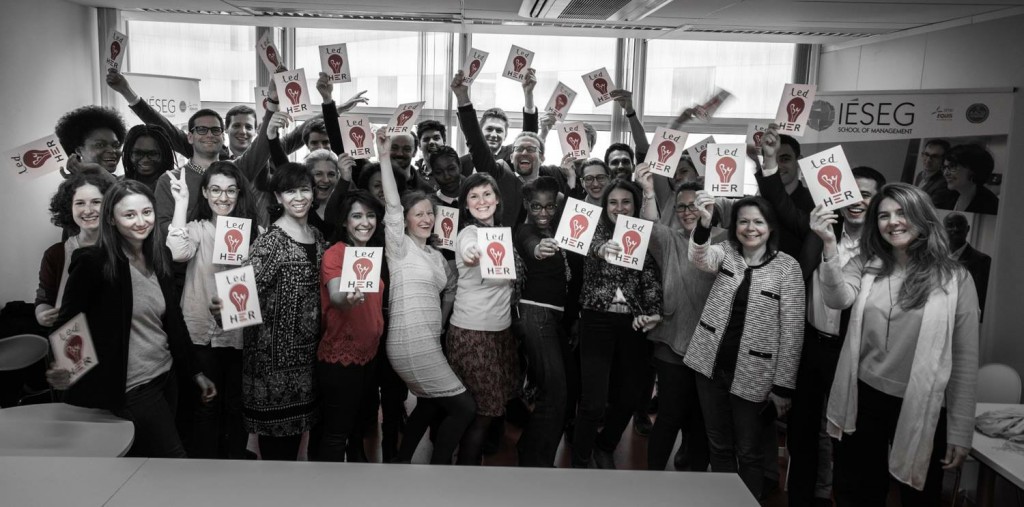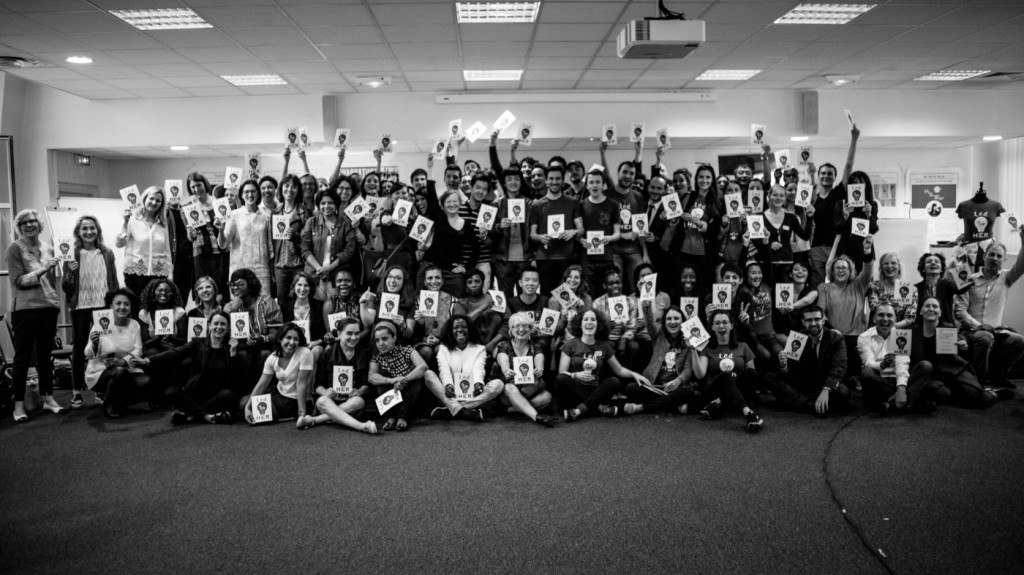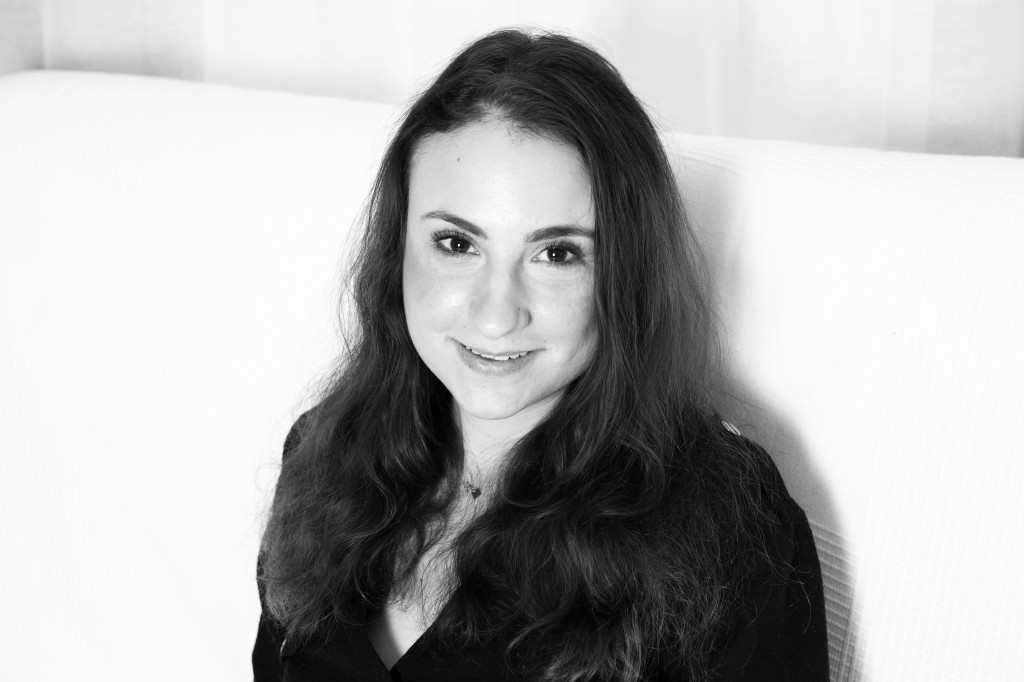W4 had the opportunity to interview trailblazing Chiara Condi, Founder of Led by Her, an innovative social enterprise that provides entrepreneurship training and mentoring for women survivors of violence in France.
What inspired you to become a social entrepreneur and, more specifically, to launch Led by Her, which works to help women survivors of violence?
I didn’t think of myself as an entrepreneur, but I saw a problem and a solution: there were projects offering emergency services to women who had suffered from violence, but there was nothing to help them rebuild their professional lives. It occurred to me that if I could get a lot of people to volunteer just three hours of time each over the course of a year, that this help would change the lives of these women. And that ended up being true.
I appealed to the business schools ESCP and IESEG and they supported the project right away, which fast-tracked the process. I then found myself thinking, ‘OK, now I have to put everything together!’ I wish I could say that I had a really long vision or elaborate strategy, but it was more a matter of asking, ‘Can’t we do something about this?’ and then finding a way to do it.
And then of course a project takes on its own life, because it grows and evolves. We have changed so much since our first year. Many of the things we have accomplished were not planned in my original strategy, but just turned out that way.
It is amazing how an idea can develop into such a great thing.
Exactly! It shows how much potential there is out there. You identify a big need, which is going unmet – and, in our case, there was no other NGO acting in the same field. I think what made it so interesting was that we really brought a new point of view to bear on the problem we’re trying to solve. Indeed, when we set out to solve this problem, people weren’t even particularly aware that the problem existed. Our project made people think, ‘OK, when women have gone through all these things, it not only affects their personal lives, but also affects their professional lives.’ We wanted to solve this problem by seeing things through, helping women to rebuild their lives personally and professionally, which was not being done before.

Photo by Margaux Pastor
Please tell us about Led by HER’s programs, services and objectives.
We help women who have suffered from violence to create an entrepreneurial project. Our program, which was created with our two partner business schools (ESCP and IESEG), provides 100 courses over 10 months (300 hours). The courses include classes on entrepreneurship, personal development, technical courses and courses taught by specialists such as coaches, professors, professionals from companies, etc. It’s a mix, but they all take place in the business schools. We also have a co-working space, provided by Orange, and individual mentoring for each of the projects. Additionally, we hold monthly events and conferences to raise awareness and support the projects as well as provide concrete feedback throughout the process.
How does your mentoring program work?
A lot of mentors come from our network or partnering companies and bring to the projects their advanced skills and training. We do an intensive day of training with our mentors, followed by a three-day training at a coaching school, Le Playground, then we hold monthly mentor meetings for consistency. Each mentor commits for at least one year, but we try to give each of our mentees a mentor for the full duration of three years.
How do you measure the impact of your programs?
First, the business school professors lead focus groups for the women throughout the course of the whole program, in addition to some one-on-one interviews. Then, after each course has been completed, we send an evaluation to assess what the women are thinking about the content and its pertinence to their project. We just completed a mission with Alter’Actions and Accenture, intended to design the best indicators for measuring the social impact.

Photo by Ammar Al Dahan
Based on your own experience, what are some of the challenges women face when embarking on the path of entrepreneurship, and, specifically, in terms of financing?
I think the primary challenge is the lack of two things: expertise and community. The women need these two elements. It can be very lonely at the beginning: often, there is not a lot of help for very early-stage entrepreneurs, and it’s nearly impossible to get beyond the start-up stage if you don’t have help early on. Instead, I think a lot of the help is concentrated in the later phases, and that’s why people give up.
What are the biggest challenges you’ve faced in your work with Led by Her?
In a sense, the bigger challenges have come with progress. Now that we are more developed, we’re asking ourselves more questions. What is our strategy? What is our future? What is our business model? Where are we going?
In the beginning, it was hard, but we were just running to get things done. Once you reach a certain level, you think, ‘OK, now I need to stop and think about a strategy.’ And I’ve found this difficult because we built something from scratch. We didn’t have anything and I didn’t know anybody when I came here to France, so Led by Her really grew from nothing.
All along, it has been a learning experience and we’ve learned from our mistakes. An entrepreneur makes many mistakes and acknowledges them, and then she is sure not to overlook the same problems next time. We grow in the face of challenge.
 Photo by Gheorghe Vulcan
Photo by Gheorghe Vulcan
What are some of your greatest achievements with Led by Her?
Our greatest achievement is seeing the people we are trying to help start their own projects! I think of it as planting seeds that are going to grow into trees. Time yields wonderful results in terms of what these women are able to do with their own lives.
Another achievement is the community we have built. We have active volunteers and we host events to which 150 to 200 guests always come because they’re so enthusiastic. They want to help, and I think that is amazing. It has been really remarkable, the great people with whom we have been able to connect through the project.
I also think it is important that we have been able to focus attention, whether from the ministries or government, on the problems affecting women today and what we can do to solve them. We’ve raised awareness, with action. People are asking: How can I do something about it? How can I become engaged now that I am aware?
In your opinion, what are the solutions/best practices to promote women’s entrepreneurship?
One of the best solutions is community, which is very hard to find in the beginning. We also have a strong focus on personal development: the entrepreneur is the most important part of the project, because the project itself can change and evolve. By working on her identity, her motivation, why she is there, an entrepreneur becomes able to pivot if necessary and to adapt in order to be truly effective and to stay motivated throughout the entire project.
We’ve learned that early-stage entrepreneurs need real opportunities to network. This is why we created all these events, so that budding entrepreneurs can meet people and tell them about their projects. This way they can get help and create a network and a strong team to help them on their projects. Of course, early-stage entrepreneurs need people to buy their services, to open those first stores and test their offerings – and we help facilitate all that.

Photo by Anna Lubeight
What are the next steps/your ambitions for Led by Her?
Our next steps are to 1) consolidate our activities so that we have a formula that we can replicate, and 2) start programs in other cities across France, and perhaps internationally. We plan to use our three years of experience so far to really define a model that can be replicated and scaled up. And we want to make sure that we are generating sufficient revenues to keep our activities running.
We also just launched a blog, which brings together the entrepreneurial knowledge of our community and makes it accessible to all women who want to launch their businesses. We are exploring more ways to use digital as a means of reaching a wider number of women and extending our values and work.
What advice would you give to aspiring female entrepreneurs?
I’d say that the less you know going in, the better! It was so much easier when I was younger, when I started this, because I knew so much less and I was simply guided by the experience itself. What I find hard is that the more you know and the more time you spend elaborating, working on your idea, etc., the more distant you can become from the thing itself. Sometimes we have to dive off the cliff and just learn along the way. I believe that too few entrepreneurs do this, and this is probably why we don’t have enough women entrepreneurs. Frankly, if I’d known all the stuff that was going to happen to me, all the challenges, I would have never got in. So, my advice is: have an idea and just go for it, take a real step as soon as you can. I think that is the key to success.













